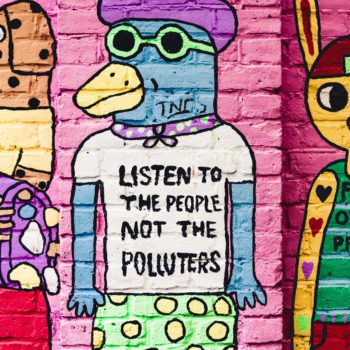|
|
Bloomberg Businessweek published a report this week outlining the problem with ESG investing. It’s a lengthy analysis with lots of facts and figures, so I thought it would be worthwhile to summarize its major findings.
Dig deeper → 2 min
Meet MSCI: the ESG matchmaker
MSCI is the world’s premier ratings company for environmental, social and governance (ESG) designations. It’s the ESG equivalent of Moody’s for insurance ratings.
MSCI has become the de-facto standard for smacking “sustainable” on any investment fund. The impact of sustainable investing has suffered as a result.
What’s the problem with MSCI ESG ratings?
According to Bloomberg’s report, MSCI ratings don’t accurately measure the impact of a company on the Earth. Rather, their ratings measure the impact of the Earth on a company.
It’s a powerful distinction that has damning effects on the real-world impact of ESG ratings. And it’s a method that MSCI openly boasts as a logical indication for relevant stakeholders.
ESG should be about climate action, not climate risk
Fund managers don’t care about the climate. They care about climate risk.
Sure, corporations are saying the right things. But their actual plan for how to fix the “climate problem” deals more with risk mitigation than actual improved operations & supply chain. This holds especially true when analyzing the environmental component of ESG funds.
Bloomberg found environmental factors to be most misleading among environmental, social, and governance (ESG) indicators.
For example, MSCI’s “Water Stress” analysis determined whether local communities had enough water to supply the company. This did not take into account whether the company stressed the local water supply.
And we know drinking water has been contaminated by corporations in the past.
Most notable among Bloomberg’s findings, “only one of the 155 [ratings] upgrades cited an actual cut in emissions as a factor”.
If you can improve your ESG rating without cutting emissions, what does the say about the reliability of ESG ratings?
How to fix the ESG rating problem
The ESG problem starts and ends with the way we rate companies. As the industry standard, MSCI needs to either repurpose its methodology through regulation, or new market standards should emerge.
Option 1: Regulate
A governmental body like the EPA can initiate additional oversight over the rating system, establishing rules that would force MSCI (and other rating companies) to change their approach in a more climate-friendly way.
Option 2: Form new standards
Regulation seems obvious. However, you could also form a co-op made up of sustainability leaders to determine ratings. This could be initiated in the form of a decentralized autonomous organization (DAO).
By incorporating decentralized protocols (one person = one vote), the organization would be less vulnerable to conflict of interest. No single stakeholder could supersede decision-making to determine ratings. A DAO would also encourage further transparency (its policies would be open-source) and perhaps even citizen participation.
Let’s address the ESG problem now, not later
Today, fund managers hide behind the thin veil of MSCI ESG ratings.
ESG funds are growing in popularity. But it’s becoming increasingly clear how their primary function is not to preserve Earth’s climate…. unintentional or not.
It’s important to spread awareness about the vanity of ESG ratings. The more people understand their lack of impact, the less credibility industry leaders like MSCI will have. Then we can focus on organizations that prioritize climate action rather than climate risk.













No Comments